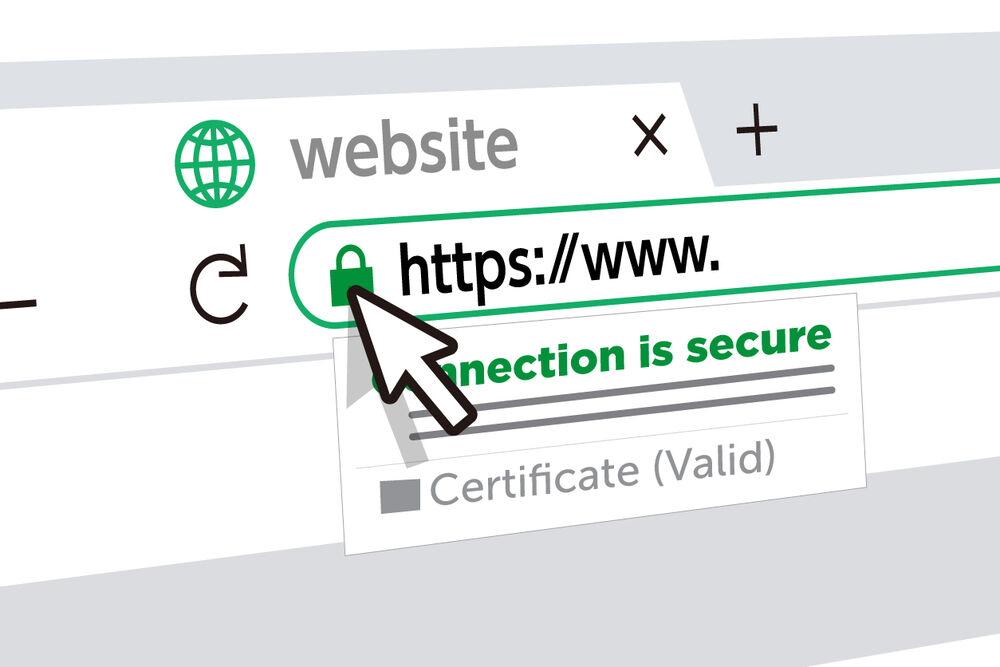In today’s digital landscape, the importance of security cannot be overstated. As more and more of our lives shift online, from shopping to banking and everything in between, ensuring the privacy and integrity of our data is paramount. Secure Sockets Layer (SSL) certificates play a crucial role in safeguarding online communication. In this article, we will delve into SSL certificates, why they are essential, how they work, and how you can secure your online presence with them.
What Are SSL Certificates?
SSL certificates are digital documents that help secure the transmission of data between a user’s web browser and a web server. They provide a secure, encrypted connection, ensuring that sensitive information, such as credit card numbers, login credentials, and personal data, is protected from interception by malicious actors.
How SSL Certificates Work
SSL certificates use a combination of public and private keys, encryption algorithms, and digital signatures to establish a secure connection. Here’s a simplified overview of the process:
- Handshake: When a user connects to a website, the server presents its SSL certificate. The user’s browser then checks the certificate to verify its authenticity.
- Public and Private Keys: The SSL certificate contains a public key, which is used to encrypt the data, and a private key, which is kept secret and used to decrypt the data.
- Data Encryption: Once the certificate is validated, the browser and server establish an encrypted connection. This encryption ensures that any data transferred between them is scrambled and secure.
- Secure Data Transfer: With the secure connection in place, data is exchanged between the user and the server. Even if a malicious actor intercepts the data, they won’t be able to decipher it without the private key.
Why Public Key Digital Certificates are Essential for Secure Online Transactions
Why SSL Certificates Are Essential
1. Data Security
SSL certificates provide data encryption, preventing unauthorized access to sensitive information. This is particularly important for websites that handle financial transactions or collect personal data.
2. Trust and Authentication
SSL certificates are issued by trusted Certificate Authorities (CAs) after verifying the identity of the website owner. When a user sees “https” and a padlock icon in their browser’s address bar, they know the website is authenticated and can be trusted.
3. SEO Benefits
Search engines, such as Google, prioritize secure websites in their search rankings. Having an SSL certificate can boost your site’s visibility and potentially attract more visitors.
4. Regulatory Compliance
Many industries and regions have specific regulations related to data protection and privacy. SSL certificates can help you comply with these regulations, avoiding legal issues and protecting your reputation.
How Google Cloud Platform Vision API is Transforming Industries
FAQs
Q1: Where can I get an SSL certificate for my website?
A1: SSL certificates can be obtained from trusted Certificate Authorities (CAs) or through your web hosting provider. Popular CAs include DigiCert, Comodo, and Let’s Encrypt (which offers free certificates).
Q2: What types of SSL certificates are available?
A2: There are various types of SSL certificates, including Domain Validation (DV), Organization Validation (OV), and Extended Validation (EV) certificates. The level of validation varies, and EV certificates provide the highest level of trust and authentication.
Q3: Is SSL only necessary for e-commerce websites?
A3: No, SSL is essential for any website that collects user data, including login credentials, contact forms, or payment information. It helps protect the privacy of your users and enhances their trust in your website.
Q4: Can I install an SSL certificate on my own, or do I need technical assistance?
A4: Installing an SSL certificate can be done on your own, but it may require technical expertise. Many web hosting providers offer assistance in obtaining and installing SSL certificates, making the process easier.
Conclusion
SSL certificates are the cornerstone of online security. They encrypt data, provide trust and authentication, offer SEO benefits, and help you comply with regulatory requirements. By ensuring the privacy and integrity of data transmitted between users and your website, SSL certificates are essential in today’s online world.
To explore further, you can refer to these external resources:
As the digital landscape evolves, SSL certificates continue to play a vital role in maintaining the security and trustworthiness of online platforms. Stay informed about the latest SSL certificate technologies and best practices to keep your online presence secure.

